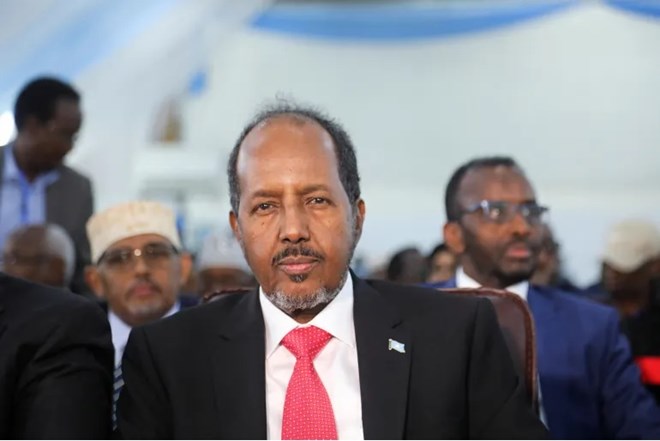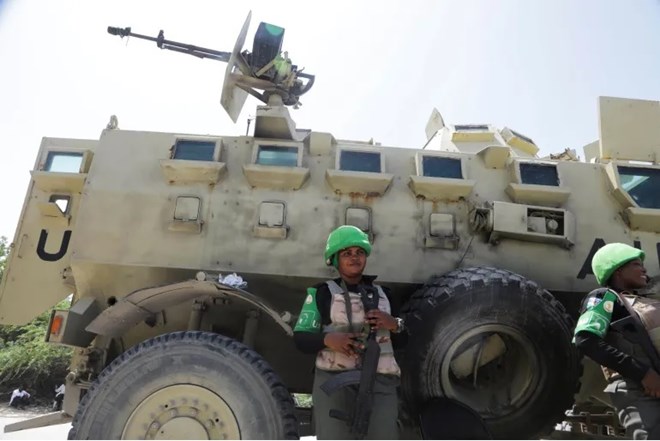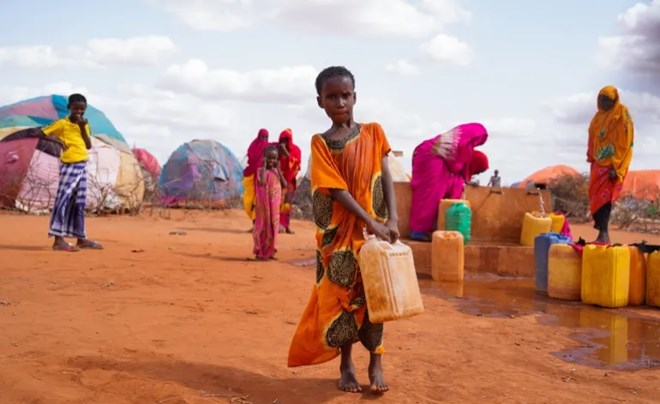
Tuesday March 7, 2023
By Virginia Pietromarchi
In a wide-ranging interview with Al Jazeera, President Mohamud talks Somaliland, the fight against al-Shabab and the country’s future.

In August last year, a few months after being re-elected for a second time, President Mohamud declared an 'all-out war' against al-Shabab [Feisal Omar/Reuters]
Doha, Qatar – Somalia is working closely to restore peace in its northern breakaway region of Somaliland amid heightening tensions between the region’s authorities and local clan forces, President Hassan Sheikh Mohamud told Al Jazeera.
“We believe that unity is the only solution… but we don’t want this unity through violence, which makes matters worse,” Mohamud told Al Jazeera on Monday.
Violence erupted after leaders of the Sool, Sanaag and Cayn provinces of Somaliland – which claimed independence from Somalia in 1991 – announced their intention to rejoin Somalia.
advertisements
Fighting broke out last month around the town of Lascanood in Sool, killing at least 80 people and displacing more than 185,000, according to the UN.“We’ve been advocating for the last couple of weeks on how we can first stop the violence and then open a space for dialogue,” Mohamud said in a wide-ranging interview in which he talked about the state’s fight against the al-Shabab armed group, a sweeping drought in the country and gender violence.
‘All-out war’ against al-Shabab
In August last year, a few months after being re-elected for a second time, Mohamud declared an “all-out war” against al-Shabab, which has been waging a rebellion against the government since 2007.
“So many people have tried to stop this via peaceful means. Now the Somali government decided to solve this through an all-out war,” he said.
“There’s no other option other than to take this terrorist group to a level where it cannot threaten the stability of the country,” Mohamud said, adding that the ultimate aim was to create the right environment for political inclusion, and attract foreign investment as well as Somalis to return to the country.
With support from the US army, African Union (AU) forces and local assistance, Somalia’s army was able to regain swaths of territory from the armed group since launching its offensive last year.
In January this year, government-led forces recaptured the port town of Harardhere, an al-Shabab stronghold on the Indian Ocean, marking one of the most significant victories of the offensive.
Al-Shabab responded with a number of attacks in the capital and other cities, including targeting the mayor’s office in Mogadishu and an attack on a military base.

AU peacekeepers provide security during Somali presidential elections in Mogadishu [File: Feisal Omar/Reuters]
“The AU has done a good job… and they have been the reason why the Somali state started to grow and [why] it has now reached a level that it provided space for society to grow,” Mohamud said.
“But now it is the Somali army, police and intelligence agencies [that] are running the operations with the support of AU and other international partners.
“Challenges will remain in place,” said the president, referring to when AU forces leave next year. “But we are organising … on one hand we’re fighting and, on the other, we are building the security sector.”
Looming famine
The threat of famine in Somalia has been present since the country went through five consecutive failed rainy seasons. It now faces a sixth.
In an assessment last December, the UN estimated that eight million people were badly food insecure and that more than 700,000 could suffer famine between April and June this year if aid supplies are not increased.
However, in its latest report in late February, UN experts said that while food insecurity remains “extremely critical”, they were no longer projecting famine.
“We averted a famine,” said Mohamud. “There is no famine right now and there is no risk of famine in the short term, but it’s looming.”
Climate experts and humanitarian workers have warned that trends in recent weeks, including expectations of below-normal rainfall, are worse than those in 2011 when a quarter of a million people died in Somalia due to famine.
There are also concerns among human-rights organisations that data to assess the level of famine is not accurate due to the state of security in certain areas.

In a report in late February, UN experts said food insecurity remains ‘extremely critical’ but they were no longer projecting famine [File: Reuters]
Violence against women
Mohamud also acknowledged the issue of gender violence by Somali forces.
In 2021, two UN reports denounced what they described as an “alarming” 80 percent increase in sexual violence in Somalia compared with 2019, mostly carried out by al-Shabab fighters.
But the reports also highlighted how sexual violence – for at least 15 percent of verified cases – was attributed to government security forces.
“[Among the] Bad characteristics of the war is that it reduces the strength of the state institutions, especially when those institutions were weak even before the war. We are not denying that we have that problem, and we are going after it.
“We built our judiciary system, we engaged our security forces and those who have committed such crimes are immediately taken to the court.”
Still, the president acknowledged, “there are some limitations” to the justice system.